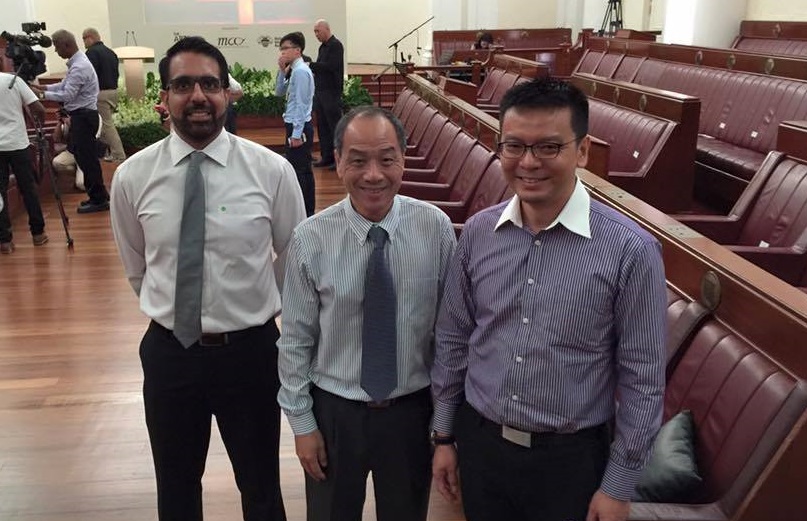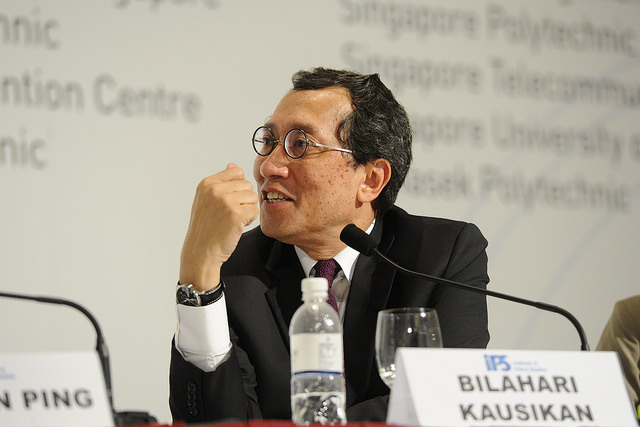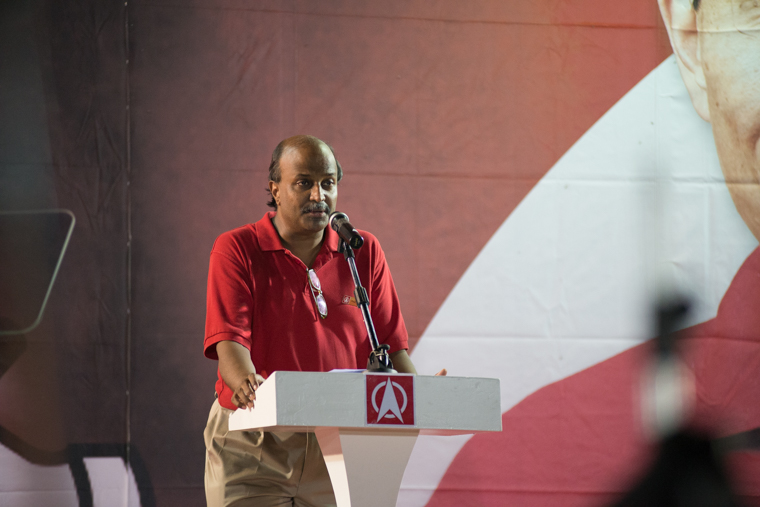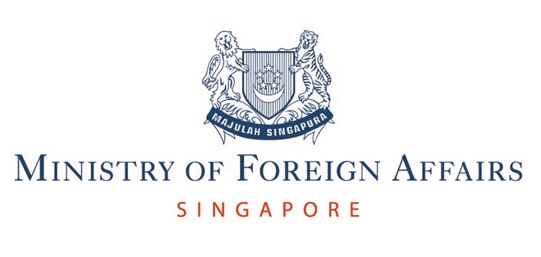Ambassador Bilahari Kausikan ended his fifth and final lecture as the Institute of Policy Studies (IPS)'s S R Nathan Fellow with a big bang last night (May 25).
The lecture "Dealing with an Ambiguous World Lecture V: Can Singapore Cope?" was typical Bilahari fashion. The ambassador-at-large from the Ministry of Foreign Affairs (MFA), delivered some no holds barred comments to the following constituents:
The civil service: "[D]oes not do badly" but "[t]here is room for improvement".
Pritam Singh of the Worker’s Party (WP): He "should have known better".
Paul Tambyah of the Singapore Democratic Party (SDP): The good doctor "ought to consult a doctor of another sort without delay: a psychiatrist."
SDP Sec-Gen Chee Soon Juan: He "has written articles attacking our FTAs, as if the people of a small city-state could make a living by taking in one another’s laundry"
Public Service Division: PSD "was probably relieved when I retired. I found the PSD’s announcement of my retirement in 2013 tellingly amusing. It said I had 31 years of service. But I joined the Foreign Service in 1981 and was shanghaied into the Administrative Service only in 1983. Do the math."
If you were to look beyond his remarkably candid and colourful remarks, you will realise that the Ambassador has just delivered one of the more cogent speeches about the domestic challenges faced by Singapore in the next decade.
Below are five "hard truths" he delivered that will raise eyebrows but perhaps keep Singapore going in the next decade:
1. Partisan politics has begun to creep into Singapore's foreign policy.
Bilahari said that Singapore can cope with the more complicated post-Cold War external environment if Singapore gets its internal environment right.
In other words, "a successful foreign policy must always and everywhere rest on a sound domestic foundation", he said.
He qualified by saying that the political debate over foreign policy is "not a bad thing" if it is conducted among Singaporeans and leads to a consensus on what is possible for a small city-state in Southeast Asia.
2. The opposition's approach to foreign policy "does not inspire confidence".
Bilahari highlighted two examples from the main opposition parties - WP and SDP - as reasons on "why their approach to foreign policy does not inspire confidence that they have any concept of the fundamental national interest".
 Source: Pritam Singh Facebook
Source: Pritam Singh Facebook
WP: In 2013, MP Pritam Singh asked a question in Parliament about Singapore's Middle East policies that could have stirred up the feelings of the Malay-Muslims against the government. Singh asked a question on Middle East policies again the following year.
Bilahari questioned the purpose of such questions especially since the Arab countries do not think that Singapore's relations with Israel and its position on Palestine are problems.
SDP: On January 29, 2015, Paul Tambyah, a member of the Central Executive Committee of the SDP, published a letter in the Straits Times that advocated for a reduction in the defence budget in favour of
health-spending.
The doctor's reason? Singapore had a history of being non-aligned in its foreign policy.
But Bilahari argued that being non-aligned is not an adequate substitute for deterrence through a strong Singapore Armed Forces, citing that "being non-aligned did not save Sihanouk’s Cambodia or Souvanna Phouma’s Laos from getting entangled in military conflicts with very tragic consequences for their peoples".
3. MFA cannot be the principal interlocutor of the country with the world anymore.
Bilahari argued that such a "concept of diplomacy is obsolete".
He explained that any MFA that tries to be a country’s main interlocutor with the world is bound to fail its country -- it can only pursue defensive interests because it will lack the domain knowledge to advance positive interests across the broad range of often highly technical issues that are now prominent on the international agenda.
In other words, all domestic agencies now have to engage internationally.
4. There is "room for improvement" for the civil service.
Bilahari noted that the Singapore civil service perform better than other civil services in East Asia and generally better than many civil services across the world, but there is room for improvement.
The diplomat said that he feared that the central organising concept of Singapore's civil service - with agencies sometimes taking a more narrowly transactional approach to their institutional interests - is eroding the alertness, agility and appreciation of nuance to cope with a more complex external environment.
With the civil service sometimes operating in institutional silos, it also makes Singapore more risk averse.
He also had some words of advice for the Administrative Service -- the senior public service leaders.
He said that "the idea that generalists make the best senior public service leaders is based on a prior, perhaps largely unconscious, assumption: that there is only one type of logic that is valid across all domains".
Bilahari highlighted that it is the function of diplomacy to reconcile logics or at least minimise friction between different logics.
While he noted that every successful diplomat has empathy -- the ability to see the world through another’s eyes and persuade him or out-manoeuvre him --, he felt that it is not a quality that comes naturally to many Singapore civil servants.
5. Singapore needs to do a better job in national education, which will play an important role in social cohesion.
In his last point about social cohesion, Bilahari concluded that Singapore "need to do a much better job of national education and are paying a price for deemphasising history in our national curriculum".
He added that "knowledge of our own history should not only be a matter for specialists" or an "academic exercise" even though our understanding of history "must of course constantly be revised".
Bilahari highlighted fault-lines that may become more prominent in the near future -- 1) Some parts of the population are attracted by western attitudes towards death penalty and LGBT rights; and 2) How Singaporeans would respond to how China approaches its ties with Chinese communities in South-east Asia.
For those who actually spent some time in reading this summary of Bilahari's speech, here is a bonus snipe for you to enjoy:
"At the apex of our civil service is the Administrative Service. This is based on the idea that senior public service leaders should be generalists, capable of taking on a range of appointments in different domains. Most senior appointments in the Ministries and Statutory Boards are filled by Administrative Service Officers rather than officers from specialist services. In my view, very few people can be equally good at everything. I for example, would have been utterly useless in any other Ministry than MFA."
You can read his full speech --- all 26 pages -- here.
Top photo from Institute of Policy Studies.
If you like what you read, follow us on Facebook and Twitter to get the latest updates.
If you like what you read, follow us on Facebook, Instagram, Twitter and Telegram to get the latest updates.


